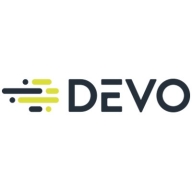

NNT Log Tracker Enterprise and Devo compete in the log management solutions category, each with distinct highlights. Devo tends to have the upper hand due to its advanced analytics and scalability, while NNT is preferred for its strong security features.
Features: NNT Log Tracker Enterprise focuses on robust security, regulatory compliance, and operational efficiency. Devo emphasizes real-time data analytics, scalability, and advanced user insights.
Room for Improvement: NNT Log Tracker Enterprise could improve in reporting capabilities, integration flexibility, and user interface. Devo needs enhancements in documentation, search functionality, and user experience.
Ease of Deployment and Customer Service: NNT Log Tracker Enterprise deployment is complex but is supported by responsive customer service. Devo offers a smoother deployment process, though its customer service is considered less proactive.
Pricing and ROI: NNT Log Tracker Enterprise is viewed as cost-effective with a good return on investment in security contexts. Devo, though more expensive, is seen as justifying the higher cost with its powerful features and data analytics ROI.
| Product | Market Share (%) |
|---|---|
| Devo | 0.7% |
| NNT Log Tracker Enterprise | 0.3% |
| Other | 99.0% |
| Company Size | Count |
|---|---|
| Small Business | 8 |
| Midsize Enterprise | 4 |
| Large Enterprise | 11 |
Devo is the only cloud-native logging and security analytics platform that releases the full potential of all your data to empower bold, confident action when it matters most. Only the Devo platform delivers the powerful combination of real-time visibility, high-performance analytics, scalability, multitenancy, and low TCO crucial for monitoring and securing business operations as enterprises accelerate their shift to the cloud.
NNT Log Tracker Enterprise is a comprehensive and easy-to-use Security Information and Event Management (SIEM) solution for any compliance mandate providing:
We monitor all Log Management reviews to prevent fraudulent reviews and keep review quality high. We do not post reviews by company employees or direct competitors. We validate each review for authenticity via cross-reference with LinkedIn, and personal follow-up with the reviewer when necessary.